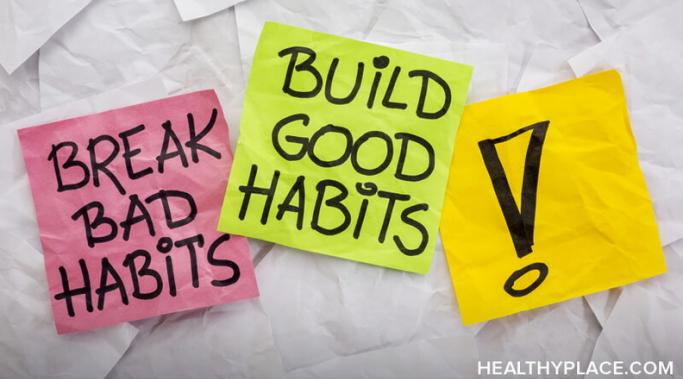Bad habits--they're pesky little things, aren't they? I imagine just reading the phrase makes you picture one of yours. Maybe your bad habit is biting your nails, or not responding to texts, or leaving the dishes in the sink. It's the thing you do that deep down, you know you don't like. But sometimes our bad habits aren't just small annoyances. Sometimes they burrow into our identity and affect our ability to build self-esteem. When bad habits affect self-esteem, what do we do?
Insecurity
Do we have to conquer fear? I've gone through some changes in my life recently that have me thinking about fear. In particular, how we react to feeling afraid. Why are some fears considered perfectly acceptable, while others fill us with shame and demand action? Being afraid of an aggressive animal, an impending surgery, or a loved one experiencing harm are all considered rational and acceptable. Yet we tend to hide our fears of social interaction, object/behaviors that feel uncomfortable, or people who affect us. So, what makes certain fears unpalatable? What makes us decide a fear is unfounded or embarrassing? Why are some fears allowed, while other fears must be conquered?
Accountability matters when we're building self-esteem. We do not like to do things wrong. As children, many of us are taught that wrongdoing results in punishment. We learn to deny mistakes, to avoid the "bad" experiences that result from being blamed. Yet though we may learn to avoid culpability, we never stop making mistakes–they are a natural part of life. So, what happens when we shift away from denying mistakes and focus on using accountability as a tool to build self-esteem?
Failure. It's not a nice word, is it? For many of us, we see failure as a glaring red stop sign. "Go no further," failure tells us, "You are not good enough to succeed." But did you know Walt Disney's first animation company was dissolved within six months? That J.K. Rowling's Harry Potter was rejected by 12 publishers? For both, failure was not a stopping point–they continued to try until they found success. How did they keep believing in themselves, instead of seeing failure as a message they couldn't succeed? They separated their work from their self-worth.
How do we define our personal values? In my post last week, "What Is Self-Worth", I explored the topic of self-worth. When we are living with low self-esteem, we often struggle to find self-worth. This comes from believing we are unable to succeed at the things we value personally. But where do these values come from? How do we decide what is important to us?
Explore your low self-esteem? How do you do that? Picture a road map. On one side is a bright red dot, labeled "High Self-Esteem." This is our destination, the place we dream of arriving. Our map is covered in routes that twist and turn, approaching the red dot from all different directions. On our journey we will be able to explore these, finding the ones that lead us closer to our goal. But in order to begin, we need to find the dot labeled "You Are Here." We have to know our starting point. We have to explore the starting point of our low self-esteem to know how to raise it.
If you're struggling with confidence and anxiety, then feeling self-confident and safe in the world around you is hard. Your brain is stuck in a stress-response mode, making you feel overwhelmed and uneasy. Anxiety isn't a choice; it's due to your biology, your environment and past experiences in the world that trigger doubt or fear. The more we know about the science of anxiety or anxiety disorders and what contributes to our level of distress, the more confident we become in our ability to overcome it.
Do you know how to talk back to your negative self-talk? Knowing how to identify negative self-talk first is important because what you tell yourself becomes your reality. When your core beliefs are self-critical, doubtful and make you feel inadequate, your self-esteem suffers tremendously. The good news is if you are willing, you can talk back to negative self-talk and transform it dramatically with just a little effort.
Each day is an opportunity to change your self-esteem. If you struggle with negative self-talk, insecurity or believe that it's too late to build self-esteem you are wrong. You deserve to feel confident and happy with your life. Others may have told you that low self-esteem is impossible to change, but that is not the case at all. In fact, small shifts can lead to tremendous gains in self-esteem and I have several ways you can change your self-esteem starting today.
Your behavior can make you look insecure to others, but you don't need to look insecure. Without knowing it, you may act in a way that shows others you struggle with confidence. However, we've all done it and instead of beating yourself up, learn how to change these behaviors so that you can appear confident and not look insecure.









